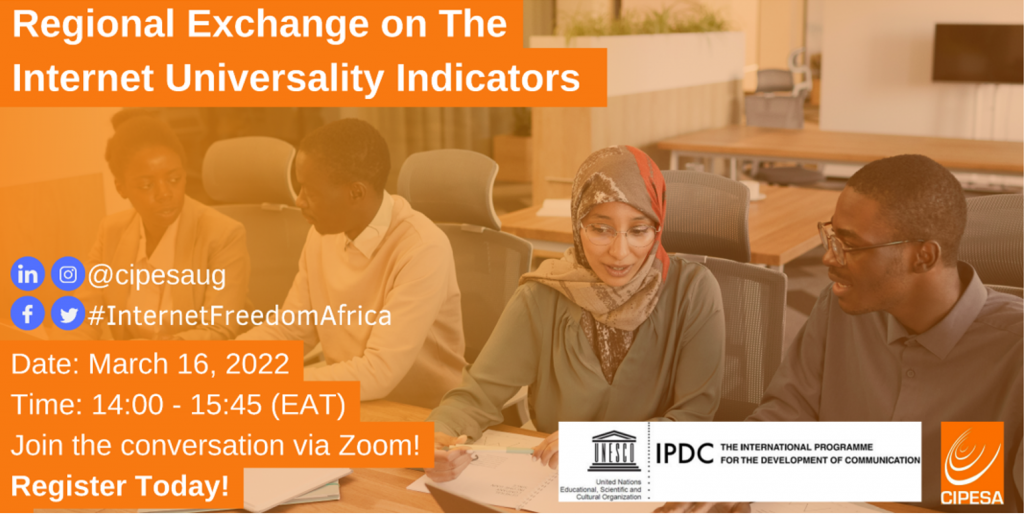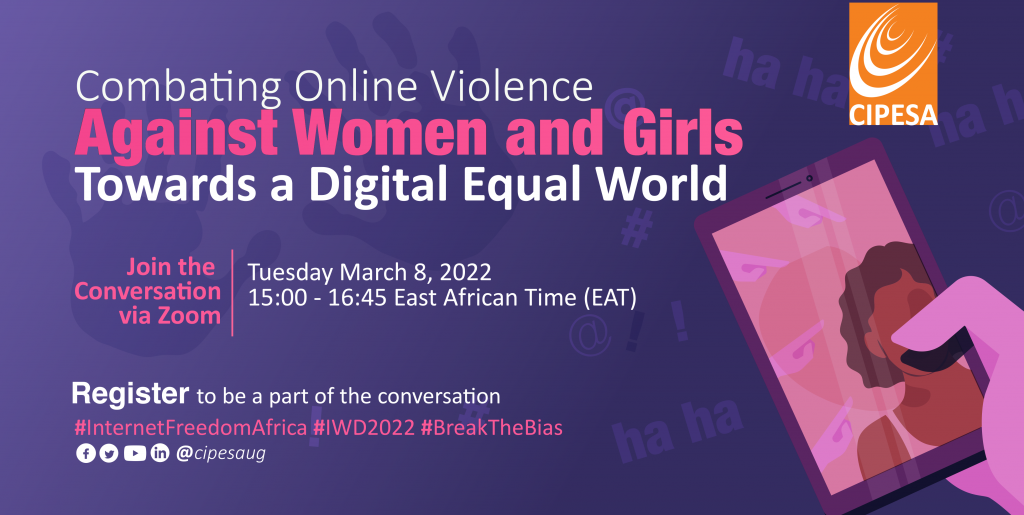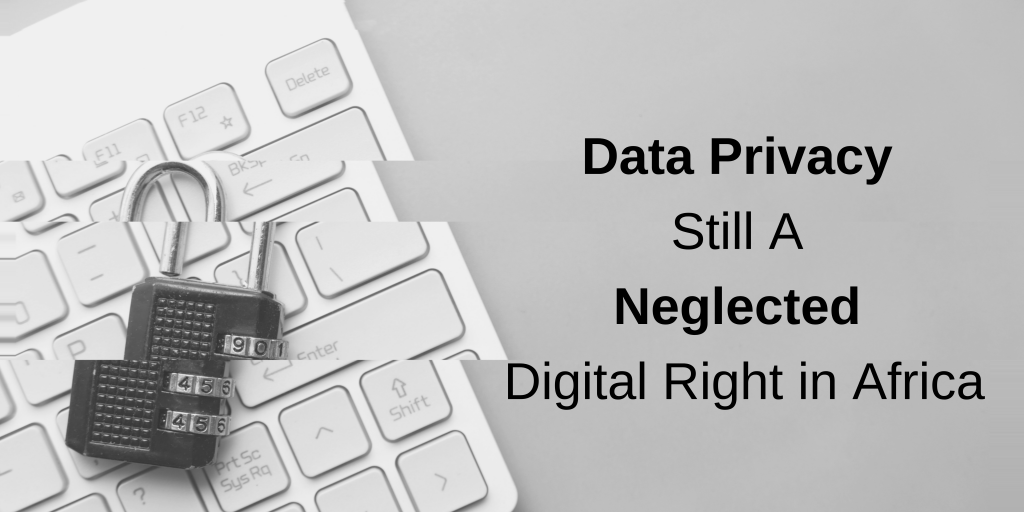Événement en ligne |
Le 16 Mars 2022, la Collaboration sur la Politique Internationale des TIC pour l’Afrique Orientale et Australe (CIPESA), en partenariat avec l’Organisation des Nations Unies pour l’éducation, la science et la culture (UNESCO), accueillera un dialogue régional sur les Indicateurs d’Universalité d’Internet (IUI). L’événement mettra en évidence les leçons tirées des évaluations de l’IUI menées au Bénin, en Éthiopie, au Ghana, au Kenya, au Niger et au Sénégal en 2021 dans le but de recueillir les meilleures pratiques en matière d’évaluations nationales des médias et des écosystèmes Internet.
L’événement s’appuie sur les efforts de la CIPESA et de l’UNESCO pour sensibiliser à l’intersection de l’accès à l’information et de l’application de l’IUI initiées lors des célébrations de la Journée Mondiale de la Liberté de la Presse en 2018 et du Forum sur la liberté de l’internet en Afrique de la même année dans le cadre des célébrations de la Journée Internationale de l’Accès Universel à l’Information (IDUAI) qui se tiennent chaque 28 Septembre.
Évolution des Indicateurs d’Universalité d’Internet (IUI)
En 2015, la 38e Conférence générale de l’UNESCO a approuvé une nouvelle définition de l’université de l’internet basée sur quatre principes – droits, ouverture, accessibilité à tous et participation multipartite – les principes ROAM. Les quatre principes, sur lesquels repose l’IUI, définissent un cadre d’évaluation des paysages numériques nationaux en vue de promouvoir la croissance et l’évolution de l’internet et la réalisation des objectifs de développement durable.
L’ajout d’indicateurs transversaux en 2018 a abouti au cadre d’indicateurs ROAM-X comprenant 303 indicateurs qui évaluent la mesure dans laquelle les parties prenantes nationales, y compris les gouvernements, les entreprises et la société civile, se conforment aux principes ROAM.
En 2008, le Programme international pour le développement de la communication (PIDC) de l’UNESCO a approuvé les Indicateurs de Développement des Médias (IDM) qui servent à évaluer l’environnement global du développement des médias dans un pays. Un autre cadre d’évaluation du PIDC est les Indicateurs de Sécurité des Journalistes (JSI), qui servent à identifier les mesures prises par les différentes parties prenantes concernées pour promouvoir la sécurité des journalistes et lutter contre l’impunité au niveau national.
Ensemble, l’IUI, le MDI et le JSI sont d’importants outils pour examiner les écosystèmes d’Internet et des médias, mais pour favoriser les collaborations numériques et stratégiques aux niveaux national, régional et international.
Pourquoi les Indicateurs sont Pertinents pour la Communauté de la Gouvernance de l’Internet et les Acteurs en Afrique.
Malgré la diversité croissante des médias et du paysage numérique en Afrique, la pluralité, la neutralité, la sécurité et la liberté d’expression font face à des affronts continus. Le secteur est également aux prises avec des préoccupations concernant la confidentialité des données, l’abordabilité de l’accès à Internet, la modération du contenu et la surveillance, entre autres.
Ces facteurs font en sorte que les médias de plusieurs pays ne sont pas à la hauteur des IMD et des JSI, tandis que les changements régressifs croissants dans l’accès et l’utilisation d’Internet par les citoyens et les médias affectent également la performance des États sur les IUI. Cependant, une évaluation approfondie et structurée peut mieux révéler la mesure dans laquelle les États fonctionnent réellement et permettre de parvenir à une réforme des politiques et des pratiques fondées sur des données probantes.
Voie à Suivre
En accueillant l’échange régional, on espère que davantage d’acteurs susciteront l’intérêt en utilisant les indicateurs pour éclairer le plaidoyer en faveur de la liberté des médias et des droits numériques
Inscrivez-vous au webinaire ici.
Prochains pays d’Intérêt
À la suite du webinaire, des sessions de formation nationales sur les indicateurs seront organisées au Cameroun, en Somalie, en Namibie, au Malawi et en Ouganda. Pour vous impliquer, envoyez un courriel à [email protected].





